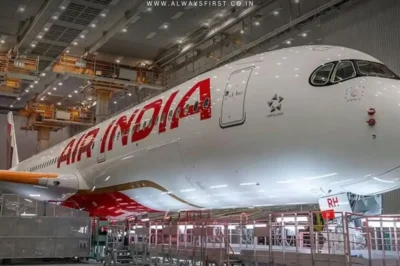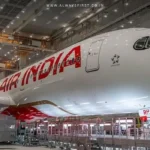Key Points:
✔ Safety First: Air India completes mandatory FCS inspections on all Boeing 787 & 737 aircraft.
✔ No Faults Detected: Inspections reveal no issues with fuel control switch locking mechanisms.
✔ Proactive Compliance: Air India began voluntary checks on July 12, meeting DGCA’s July 21 deadline.
Air India Confirms Boeing Fleet Clears Critical Fuel Switch Inspections
In a significant safety update, Air India announced Tuesday that it has completed precautionary inspections of the Fuel Control Switch (FCS) locking mechanisms across its entire Boeing 787 Dreamliner and Boeing 737 fleet. The airline confirmed that no technical issues were detected during the checks, ensuring compliance with aviation safety standards.
The inspections were carried out following a directive from India’s Directorate General of Civil Aviation (DGCA), which had set a July 21 deadline for airlines to examine the fuel switches. Air India, however, took a proactive approach—beginning voluntary inspections as early as July 12—and wrapped up the process well within the regulator’s timeline.
Why Were These Inspections Necessary?
The DGCA’s order came after multiple international Boeing operators initiated voluntary checks following a Safety Alert for Operators (SAIB). The move gained urgency after a catastrophic Air India flight crash on June 12, where preliminary reports indicated that both engines lost fuel mid-flight due to the FCS switching to ‘CUTOFF’ mode shortly after takeoff. The tragedy, which claimed 241 lives, marked one of India’s deadliest aviation disasters in decades.
Air India’s Commitment to Safety
In an official statement, the airline emphasized its “unwavering commitment to passenger and crew safety.” With over 1,100 Boeing 787 aircraft operating globally, the inspections were a crucial step in preventing potential malfunctions.
While the findings bring relief, aviation experts suggest that continuous monitoring of critical flight systems remains essential. For now, Air India passengers can rest assured that the airline has met all regulatory safety checks—without any red flags.






































Leave a Reply